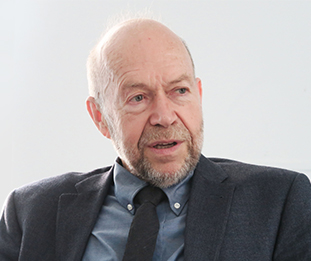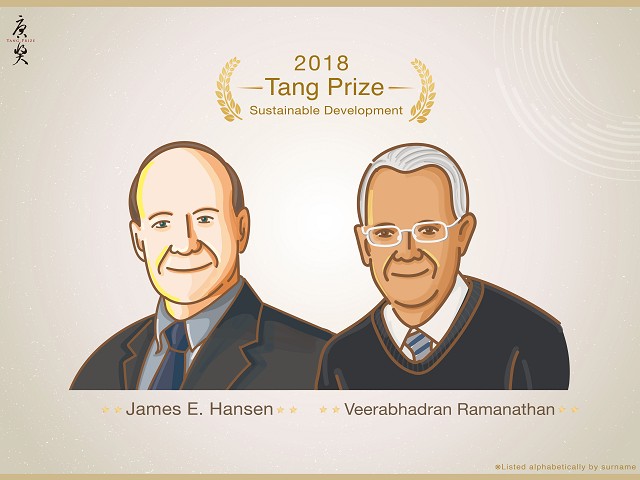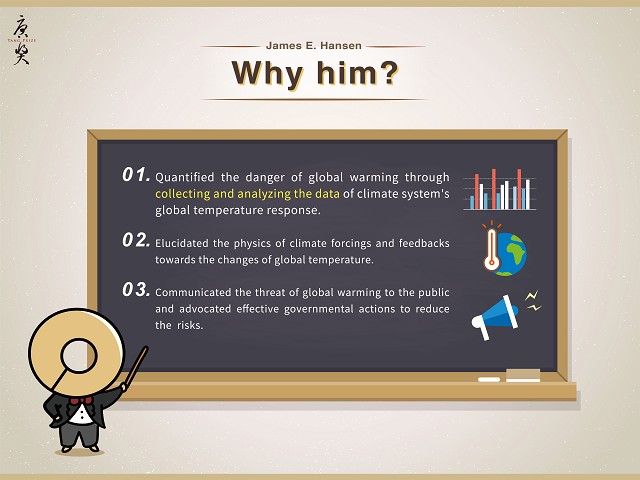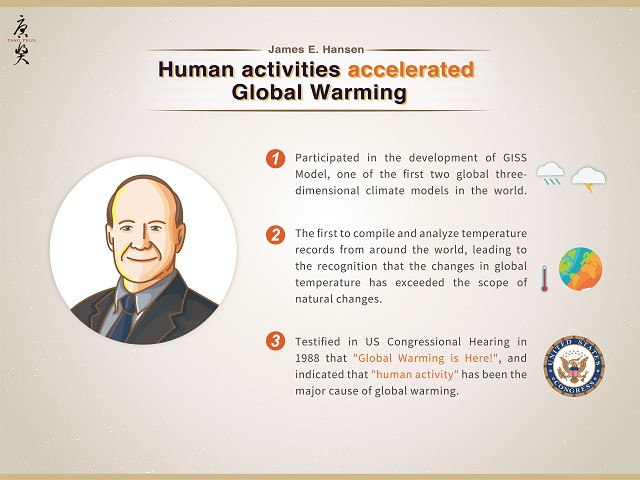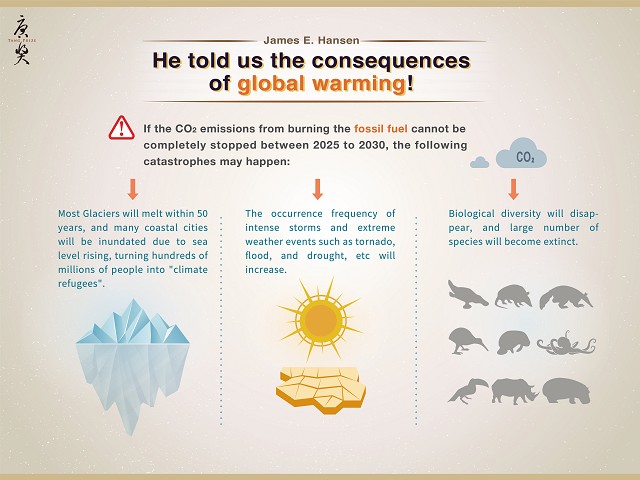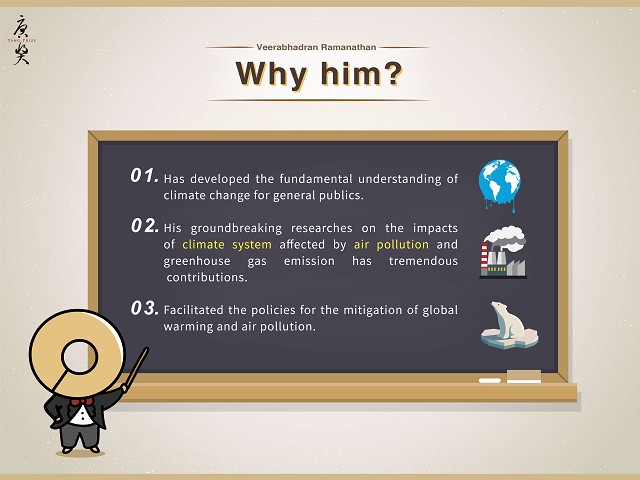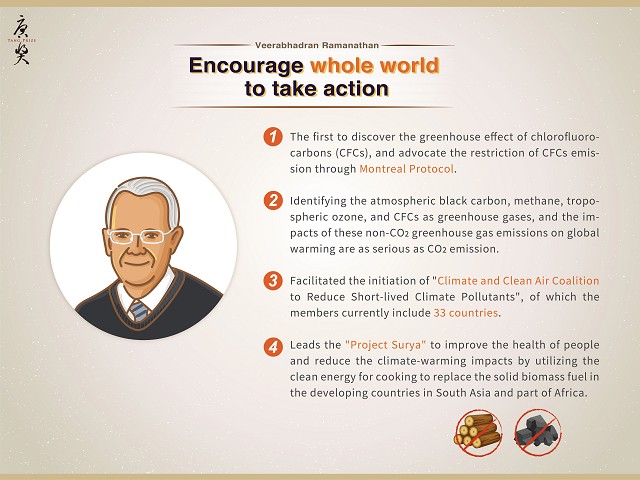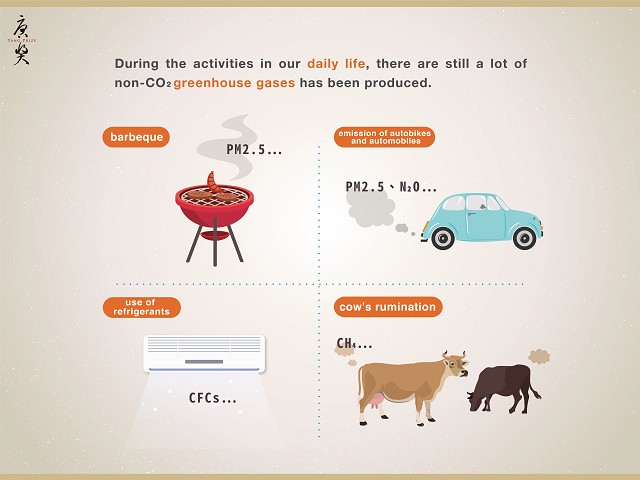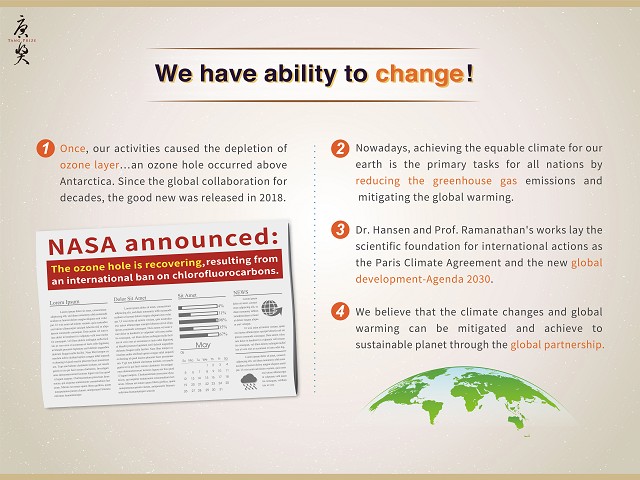Human activities contribute to climate change, and climate change is one of the most pressing challenges facing humanity today in our endeavor toward sustainability. The solution must be rooted firmly in science. Scientific knowledge should be applied to articulate how climate change affects our efforts to achieve goals of sustainable development, through scientific assessments of current conditions and future prospects for the Earth system. It should also provide information to better enable formulation and selection of environment and development policies in the decision-making process. It is probably fair to say that the first prerequisite for a sustainable planet is equable climate.
Tang Prize in Sustainable Development 2018 is awarded to Dr. James E. Hansen and Prof. Veerabhadran Ramanathan, recognizing their pioneering work on climate change and its impact on the sustainability of the earth.
Their works lay the scientific foundation for international actions as the Paris Climate Agreement and the new global development-Agenda 2030.
Dr. James E. Hansen has been at the forefront of advancing scientific understanding of the climate change phenomenon, as well as communicating to the public the magnitude of the threat and advocating for meaningful action. In Dr. James E. Hansen’s 46 years at NASA, he became the top climate scientist at the agency, and one of the world’s pre-eminent researchers on global warming.
Dr. Hansen is a pioneer on numerous fronts related to sustainability. On the scientific front, he developed one of the first two global three-dimensional climate models in the world, and was first to analyze and quantitatively explain the climate system's global temperature response in terms of specific changes caused by water vapor, cloud, surface-albedo feedback interactions. Dr. Hansen was the first to compile temperature records from around the world and was the first to detect the greenhouse warming signal as it emerged above the noise (natural variability). He was prescient about the impacts of climate change. Indeed his publications in the 1980’s warned the world of intense storms and extreme weather – events which we have witnessed and experienced around the globe in the past decade and in the summer of 2017. Dr. Hansen also made seminal contributions on climate forcing and evaluated model uncertainties, pointing out that the effects of GHGs on climate are dependent not on current emissions, but rather accumulated emissions.
Dr. Hansen is a man of uncommon courage and conviction. In 1988, then Director of NASA Goddard Institute of Space Studies, he famously announced in televised testimony before the US Congress that “global warming is here,” as the observed temperature record exhibited an anomalous rise above the statistical noise of natural fluctuations. Dr. Hansen's testimony “was an important turning point in the history of global climate change.”
In 2008, Hansen and colleagues identified 350 ppm concentration of CO2, reached as a global average twenty years earlier, as the maximum representative level allowable for a safe and stable climate. In the aftermath of the Paris meeting in December 2016 on climate change, COP21, it has become the agreed policy of the world to try to limit the rise of global average temperature to 2°C at most, and to 1.5°C if possible. Dr. Hansen has instead declared such goals as less meaningful than limiting the maximum CO2 concentration to something of order 450 ppm, and then trying to bring it down eventually to below 350 ppm. In his usual forthright manner, he draws the logical conclusion that the latter goals must entail a policy that leaves known reserves of fossil fuels unburned. Moreover, economic incentives must be set in place so that appropriate technologies can be developed and deployed to affect the necessary transformation from a global energy economy dominated by fossil fuels to a more sustainable one with truly clean sources of energy.
In the review of Hansen's book “Storms of My Grandchildren”, former U. S. Vice President Al Gore wrote in Time Magazine: “When the history of the climate crisis is written, Hansen will be seen as the scientist with the most powerful and consistent voice calling for intelligent action to preserve our planet's environment”. Dr. Hansen sounded the alert on climate change, dedicated his career to performing world-class science that contributed meaningfully to establishing the threat of global warming, and he eloquently and knowledgeably continues to advocate effective technologies and public policies for its mitigation.
